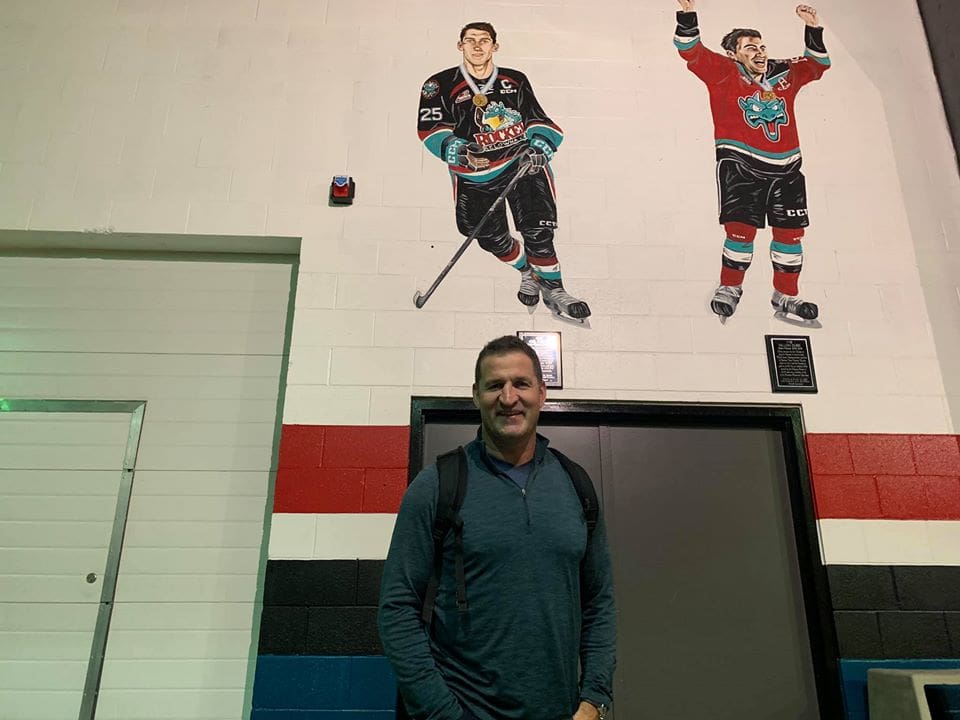CHN+
Adam Foote Loving Life Again in New Career as Junior Hockey Coach

KELOWNA, British Columbia – It wasn’t quite the same final game as his former teammate Ray Bourque had, but Adam Foote’s final shift as a member of the Colorado Avalanche, on April 10, 2011, was seemingly the perfect sendoff to a great, long NHL career. It was pure Footer; First, he whacked the stick out of the hands of Edmonton Oilers defenseman Ladislav Smid, with seeming disgust. Then, he went on to the bodily abuse of Oilers forward Teemu Hartikainen he’d started earlier. He gave Hartikainen a shove into the boards. Then, he body-checked him into the boards. Then, he did it again. And, again. It wasn’t until Hartikainen was down that Foote skated off for a line change, to the roar of the Pepsi Center crowd.
“I hit a guy, then I heard the cheer,” Foote said in recollection to Colorado Hockey Now, on a Monday afternoon at Prospera Arena, the home of the Kelowna Rockets team of the Western Hockey League he now coaches. “When I hit the guy, I was kind of upset at myself, because I was so out of shape that game. My foot was fine (it had previously been keeping him out of the lineup) but I was so out of shape. Any player I know would have played (in their final game). But I was so out of shape, so when I hit the guy, I was so tired. But when I heard the fans cheer, I went, ‘Oh. I like that.’ I didn’t score too many goals, so I had to find a way to get cheers. The fans revved me up. They always did.”
It wasn’t a Stanley Cup sendoff like Bourque had, but it seemed an otherwise perfect capper to a 19-season NHL career with Quebec, Columbus and the Avalanche. Foote had nothing left to accomplish as a player, having won two Stanley Cups with the Avs and an Olympic gold medal with Team Canada. Blessed with two young children at the time – who both would go on to become NHL first-round draft picks – a healthy marriage and lots of money in the bank, Foote seemed a good candidate to endure none of the problems that often befall pro athletes early in retirement.
But they say every pro athlete dies twice – once for real, and once when they’re still alive, when the thing they’d always dreamed about and worked so hard for – their career – does, too. For a guy who appeared to have everything, Foote instead says he felt empty for “two to four years” after it was over.
“I didn’t expect to be as bitter as I was,” Foote says. “It affected a lot of people. It was just missing it. I didn’t want it to be over. I didn’t expect to feel that. But it’s hard to not feel like part of a team anymore. I think a lot of players feel it, but won’t admit it. It is definitely an adjustment of life. I felt empty for a long time. You get a little grouchy, a little overweight, a little out of shape. And then all of a sudden, you’re like, ‘OK, I gotta get something goin’ here.'”












